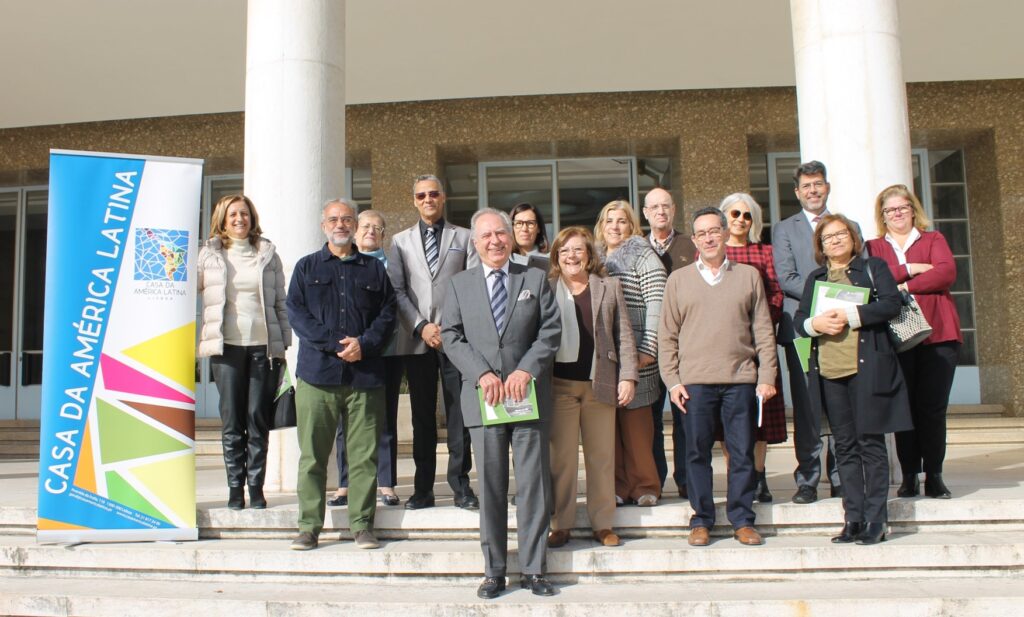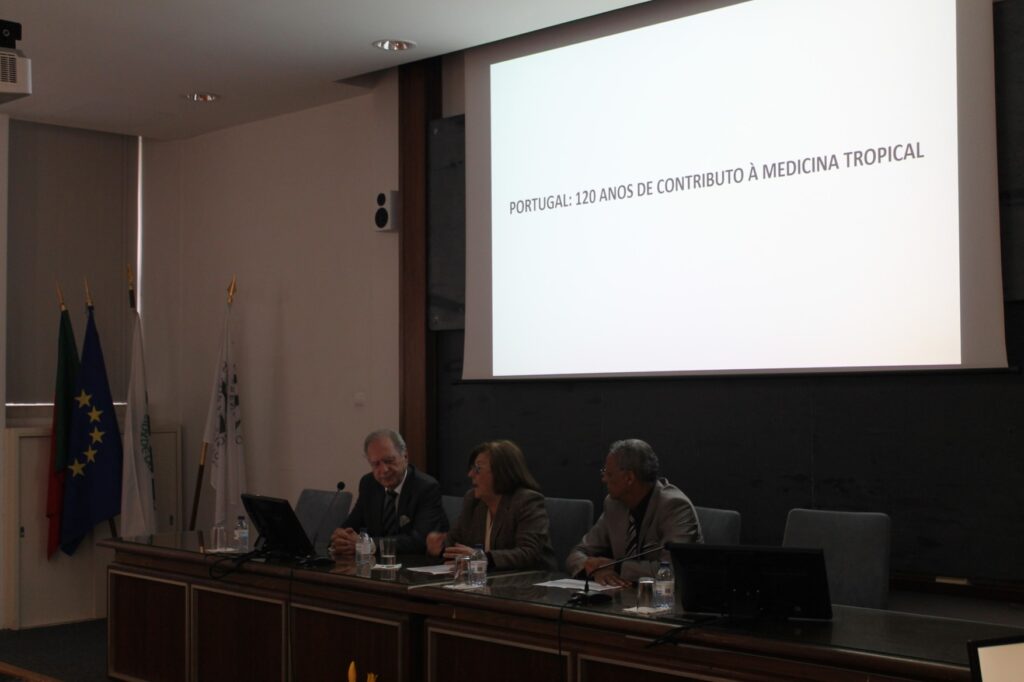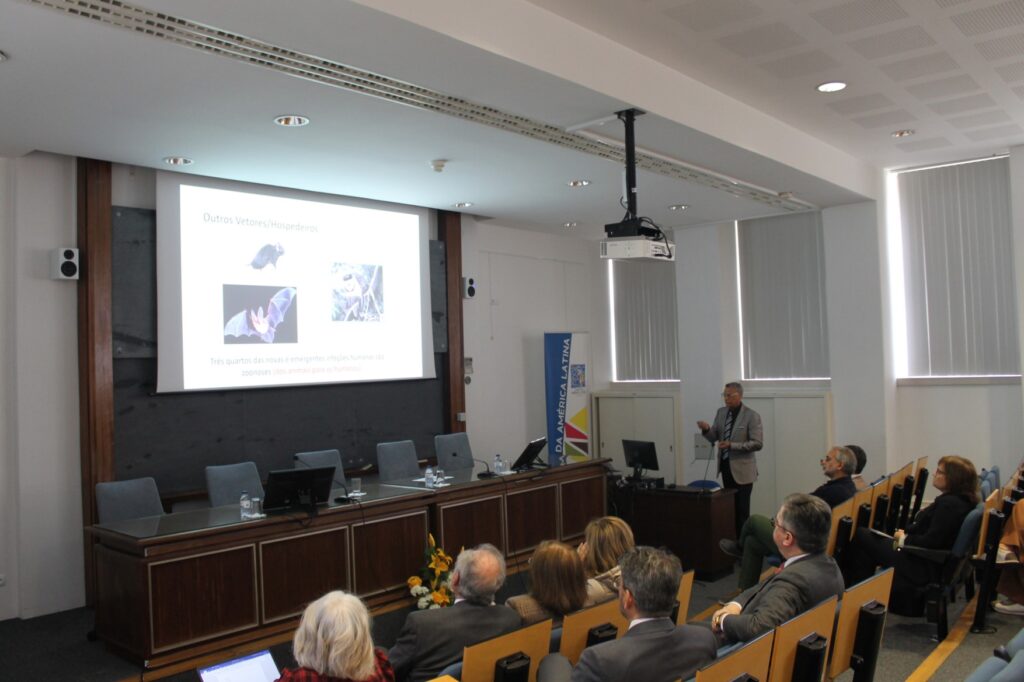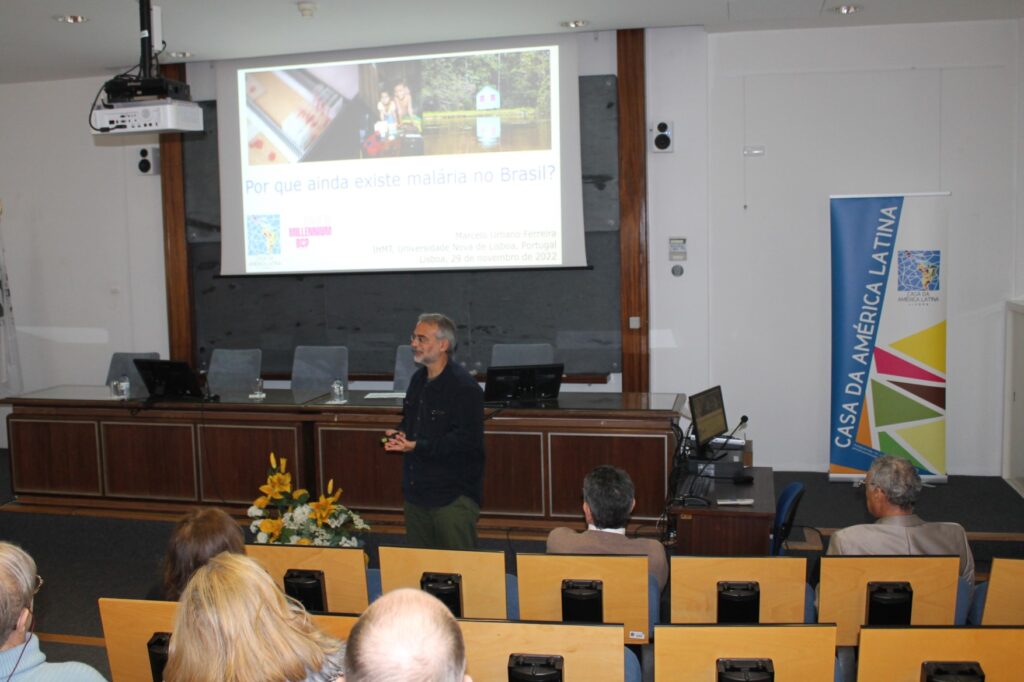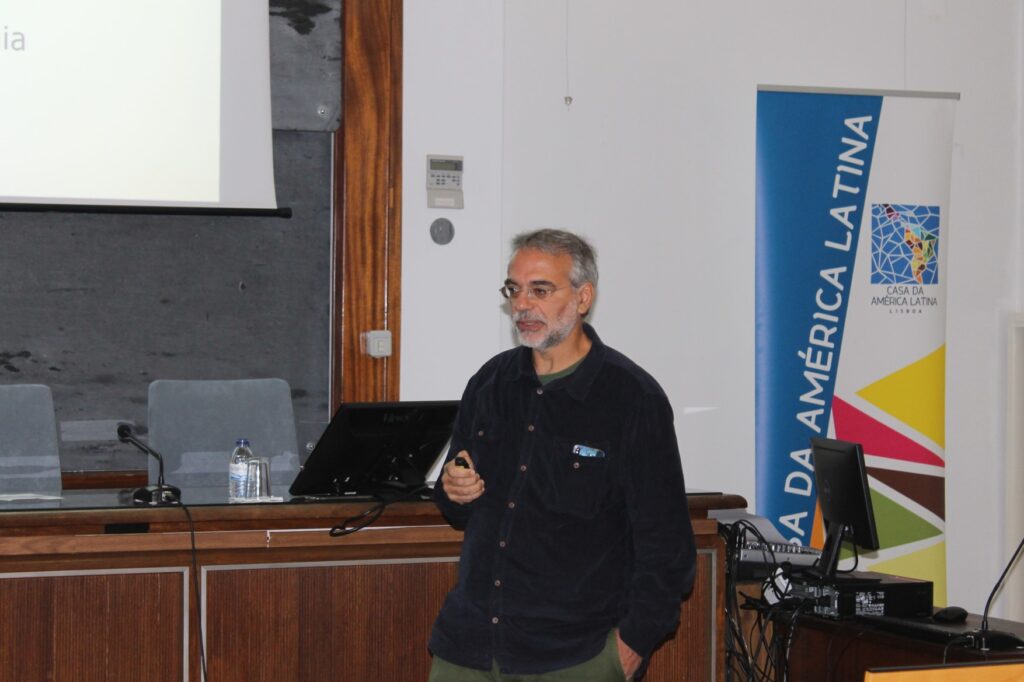In the context of the framework Institute of Hygiene and Tropical Medicine | Casa da América Latina | Millennium BCP, on 29th November, GHTM-IHMT-NOVA hosted the Casa da América Latina (CAL) annual meeting.
The opening of the event was attended by the Director of IHMT, Filomeno Fortes, the General Secretary of CAL, Manuela Júdice, and the Chairman of the Board of Directors of the Millennium BCP Foundation, António Monteiro. In their interventions, they highlighted that “the Institute of IHMT has maintained an excellent and fruitful collaboration with CAL, which has allowed, with the participation of the BCP Millennium Foundation, the permanence of qualified technicians from Latin American countries, to develop technical projects of high interest, at the IHMT”.
Marcelo Ferreira, from the University of São Paulo, in Brazil, was awarded a chair, through a tripartite protocol, which granted a scholarship that has allowed him to developed several research works over the course of 4 years, namely in the area of malaria, at GHTM-IHMT-NOVA.
As mentioned by the head of IHC-GHTM Research Group, “the CAL scholarship, received between 2018 and 2021, funded yearly 3-month stays in Lisbon over the past four years, with the aim of fostering collaboration between Brazil and Portugal and setting the stage for field-based research in the areas of Tropical Medicine and Parasitology”.
After an overview of the 120 years of IHMT-NOVA in the field of Tropical Medicine, uttered by Filomeno Fortes, Marcelo Urbano Ferreira took the floor to briefly present a synopsis of the results obtained therefrom followed by an explanation of key findings that seeks to answer the question: “why do we still have malaria in Brazil?”
“Although the drugs currently available for the treatment of malaria are effective, the biggest obstacles to controlling this disease lie in risk assessment, immunity development and diagnostic challenges, as well as the challenge of vector control”, said the researcher, adding that “the measures must be adjusted to the geographic context of the infection”.
Questioned about the meaning of the CAL chair, Marcelo Urbano Ferreira shared that “it was a unique experience in my carrier, and now translates into ongoing research projects in Brazil and Africa and the mentorship of graduate students”, he concluded.
